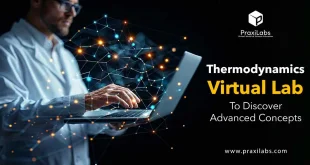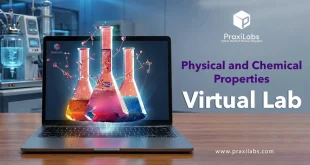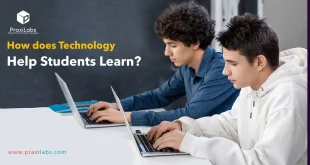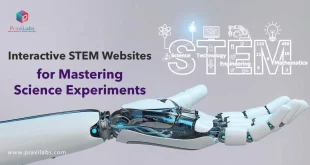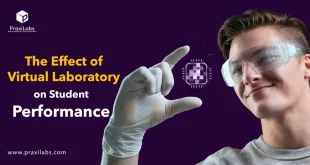Last Updated on February 4, 2026 by Muhamed Elmesery Thermodynamics is one of the most conceptually challenging areas in physics—filled with abstract ideas like energy conservation, internal energy, and heat transfer that students often struggle to visualize in traditional classrooms. This is where a thermodynamics virtual lab becomes a game-changer. By transforming complex theories into interactive, experiment-driven experiences, virtual labs …
Read More »Nourhan Essam
Physical and Chemical Properties Virtual Lab
Last Updated on February 1, 2026 by Muhamed Elmesery Understanding physical and chemical properties is a cornerstone of chemistry education, yet traditional labs often limit how deeply students can explore these concepts due to safety concerns, time constraints, and limited resources. Virtual labs are changing this reality. By simulating real laboratory environments, physical and chemical properties virtual lab allow students …
Read More »How does Technology Help Students Learn?
Last Updated on January 21, 2026 by Muhamed Elmesery Learning today looks very different from the classroom of the past. Technology has reshaped how students interact with knowledge, moving learning beyond textbooks and lectures into dynamic, immersive experiences. Through interactive tools, simulations, and digital platforms, students can now visualize abstract concepts, experiment in risk-free environments, and learn at their own …
Read More »Interactive STEM Websites for Mastering Science Experiments
Last Updated on January 18, 2026 by Muhamed Elmesery Interactive STEM websites help students master science experiments by turning complex concepts into hands-on digital experiences. Through simulations and virtual labs, learners can explore, experiment, and understand scientific principles in a clear, engaging, and practical way. By combining interactivity, visualization, and inquiry-based learning, interactive STEM websites empower students to experiment freely, …
Read More »The Effect of Virtual Laboratory on Student Performance
Last Updated on January 15, 2026 by Muhamed Elmesery In today’s rapidly evolving educational landscape, the traditional science laboratory is no longer the only gateway to meaningful experimentation and discovery. Virtual laboratories have emerged as a powerful learning tool, transforming how students interact with scientific concepts and conduct experiments. The effect of virtual laboratory on student performance goes beyond convenience. …
Read More » PraxiLabs A virtual world of science
PraxiLabs A virtual world of science

